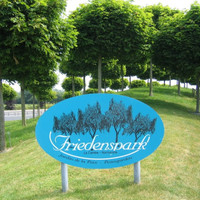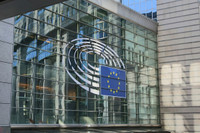
For our weekly “Ideas on Europe” editorial by UACES, the University Association for European Studies, we welcome Joanna Ciesielska-Klikowska from the University of Lodz, in Poland. Bonjour, Joanna!
Joanna, together with your colleagues Tomasz Kamiński and Michal Gzik, you have conducted a survey on the cooperation of cities in Europe with Chinese municipalities, which is a form of paradiplomatic activities. Can you explain the term “paradiplomacy?”
In political science, we speak of “paradiplomacy” when we refer to the operations of “subnational governments”, meaning regions and cities, in the international arena, with the aim of promoting their own interests.
Such paradiplomatic activities are a part of a much broader process of “pluralization” of diplomacy in which diplomatic practices, institutions and discourses are no longer limited to traditional actors. There is no doubt that we are currently living in a world that undergoes a major transition of power, a redistribution of tools and possibilities on all political levels. So paradiplomacy is playing an increasingly important role.
How does the European Union look at these “paradiplomatic” initiatives?
More and more positively! In September 2021, the European Parliament adopted a resolution with the position that the future strategic document for EU-China relations should emphasize not only the importance of ties with China maintained at the level of EU institutions and Member States but that it should take into account the position of regional and local authorities as well.
As a matter of fact, in the context of relations between the European Union and China, a lot has been going on at the subnational level over the last 40 years. The research of our team, shows that more than half of European cities of over 50,000 inhabitants have developed intensive contact with partner cities in China. Last year, our research group surveyed 743 European cities and towns from all 27 EU Member States with very interesting results!
That’s a quite a big survey. What did you find out?
The first partnerships were signed in the 1980s, but it’s mainly the last decade that brought a significant boost in looking for twin cities. Perhaps not surprisingly, all large cities with over 1 million inhabitants have contacts with Chinese partner cities, but even among the medium and small municipalities, the percentage of cooperating towns is considerable too (39% and 25% respectively). It is important to indicate here that there are three geographical clusters - Northern Europe and CEE cooperate much more often than Southern Europe. And the Scandinavian countries are the leader of cooperation among all EU members.
Interestingly, cities cooperate in economic matters, but no less important is cooperation in secondary and higher education and in culture. It comes to no surprise that cultural institutions, schools, universities, and business partners are the greatest beneficiaries of such partnerships. As officials from the surveyed cities point out, this cooperation brings many benefits: there is, of course, the exchange of experiences and the promotion of culture and tourism, the attraction of Chinese investments and a better positioning of local companies in their business with China.
I imagine the cooperation is not without problems and challenges, right?
Yes, of course, to start with there is the geographical distance that generates high costs of organizing official visits or joint cultural events. There are also language barriers or low involvement of partners. Nevertheless, the importance of such cooperation is considered high – 15% of the surveyed cities perceive these partnerships as crucial.
Although cities see many advantages of this cooperation, their officials indicate that the activities are coordinated only to a small extent by national authorities and even less by the European Union. In other words: for the time being, international city cooperation remains overshadowed by big politics. However, the new guidelines for the EU-China strategy could change that.Actually, it is the results of our research survey and a meeting with the EU-China working group within the European Liberal Forum, which is a political foundation associated to the Alliance of Liberals and Democrats for Europe Party, that contributed to the introduction of provisions changing the European Union's strategy towards China and drawing attention to the importance of cities in bottom-up relations between the EU and China. To see that our scientific research may help changing politics is very rewarding for our team.
Congratulations to your team, Joanna. At Euradio, we have always promoted the direct link between the local and the European level, and we can only appreciate your approach.
“Ideas on Europe” will be back next week.
The research carried out as part of the project “The role of cities in the European Union’s policy towards China”, financed by the Polish National Science Centre under the OPUS-17 Program, project number 2019/33/B/HS5/01272.
Useful links:
Tomasz Kamiński (ed.) (2021), The Role of Regions in EU-China relations, Lodz University Press, https://wydawnictwo.uni.lodz.pl/produkt/the-role-of-regions-in-eu-china-relations/
Joanna Ciesielska-Klikowska (2021), Cooperation of German cities with Chinese partners and its importance for Germany’s foreign policy. „Sprawy Międzynarodowe”, 74(1), 119-151. https://doi.org/10.35757/SM.2021.74.1.06: http://sprawymiedzynarodowe.waw.pl/
European Liberal Forum (2021), Liberal White Book, Europe 2030. The Road for a liberal Europe and how to get there, https://liberalforum.eu/wp-content/uploads/2021/04/Liberal-White-Book-Europe-2030.pdf
Tomasz Kamiński, Joanna Ciesielska-Klikowska (2021), The subnational dimension of the European Union’s relations with China: A solution for tough times?, in: „Europe in an Era of Growing Sino-American Competition”, eds. R. Wolf, S. Biba, Routledge, p. 54-72, https://www.routledge.com/Europe-in-an-Era-of-Growing-Sino-American-Competition-Coping-with-an-Unstable/Biba-Wolf/p/book/9780367441203





